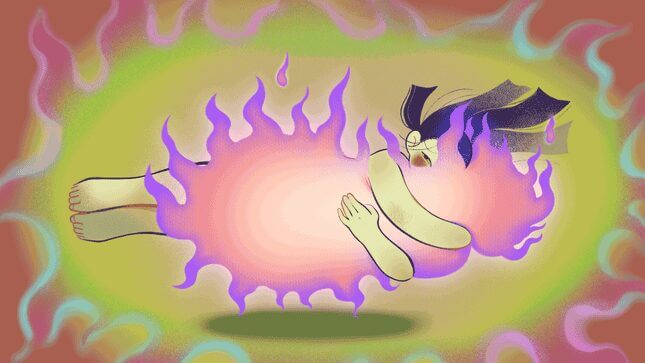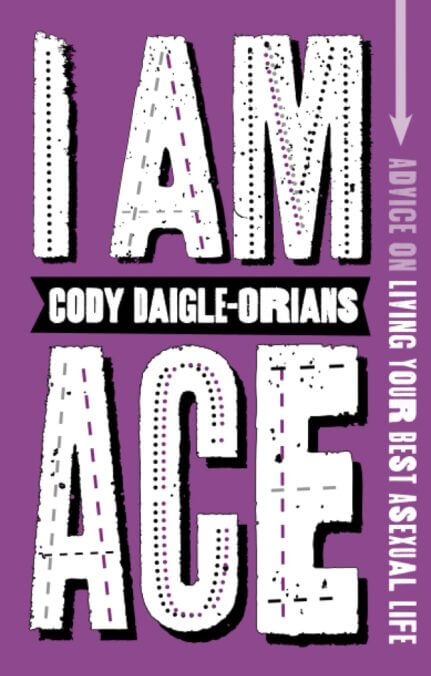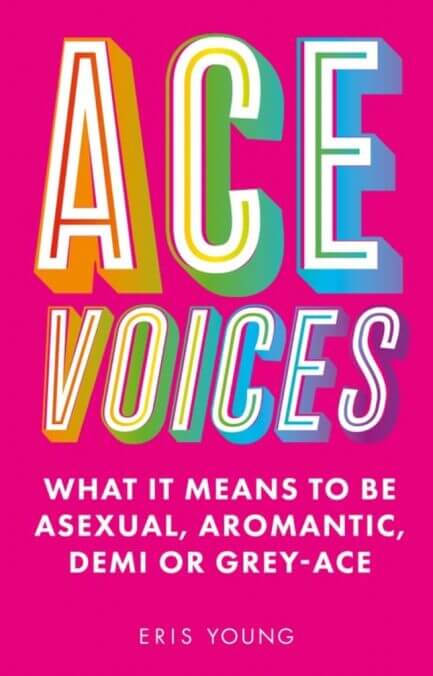What Horniness Looks Like for Asexual People
Yes, it's possible to identify as asexual and be horny. "There’s no contradiction there," says one of our experts.
In DepthIn Depth
Illustration: Hana Chatani
“It can be a very asexual thing to be horny,” said model/activist/writer Yasmin Benoit during a recent Zoom with Jezebel. “There’s no contradiction there.”
But before we get into what horniness can look like to asexuals—as it is, after all, Horny Week on Jezebel—we ought to be familiar with asexuality and its vast community (an estimated 1 percent of adults identify as asexual). Those who aren’t part of the community—allosexuals, or people who do experience sexual attraction—might believe that asexual folks lack sexuality and therefore live lives devoid of sex. But though there are asexuals (aces) who don’t have sex or a libido to speak of, the term is much broader than that. Most simply put, “asexuality” tends to refer to “a lack of sexual attraction towards anyone, regardless of their gender,” Benoit said.

Illustration:Jezebel
“And when I say ‘sexual attraction,’ I mean that intrinsic sexual desire towards other people, the desire to involve other people in your sexuality, which then has nothing to do with what sexuality I have for myself as an individual,” she added. Asexuality does not necessarily bespeak a lack of sexual bodily urges—they just aren’t pointed at other people.
In her brilliant 2020 book Ace: What Asexuality Reveals About Desire, Society, and the Meaning of Sex, Angela Chen breaks down said distinction like this:
Sexual attraction, then, is horniness toward or caused by a specific person. It is the desire to be sexual with that partner—libido with a target. To use a food metaphor: a person can feel physiological hunger, which would be like sex drive, without craving a specific dish, which would be more like sexual attraction.
Food metaphors run rampant in the raft of recent books on the topic of asexuality, a long misunderstood and marginalized orientation, which has found community via the internet. In Eris Young’s Ace Voices, from 2022, they write:
Sexual attraction is like wanting pizza, and in a world where almost everybody wants pizza (each one a different kind of pizza, but still pizza) I do not have any desire to eat pizza. This doesn’t mean I cannot eat pizza, or that if I try it I wouldn’t like it, but still I never experience the desire to eat pizza.
And then later, a source in Ace Voices called VC shares:
Think of my ideal partnership as a cake (very ace of me haha) and that my recipe for the cake is different from the traditional cake recipe. In my recipe, sex is an ingredient that is briefly mentioned as an optional ingredient, maybe a topping. I don’t really care for it but maybe be curious to try adding it to my cake at some point.
My outside observations indicate that articulation is prized amongst aces, and those on the asexuality spectrum, or a-spec, use a lexicon that could fill a pocket dictionary. Some aces also identify as aromantic, or aro. There are aceflux people (people who are somewhere between allo and ace, perhaps depending on the situation), demisexuals (people who don’t experience sexual attraction in the absence of an emotional bond), and lithosexuals (people who might experience sexual attraction but don’t want it reciprocated). There are sex-favorable asexuals, sex-neutral asexuals, and sex-repulsed asexuals. The designations go on and on.
The vastness of this argot is indicative of nothing less than an expansion of the infinite possibilities within the benign variation of human sexuality. As Sherronda J. Brown writes in 2022’s Refusing Compulsory Sexuality: A Black Asexual Lens on Our Sex-Obsessed Culture: “Asexual consciousness recognizes that none of the things we ‘know’ to be true about sex are immovable, and they are always influenced by societal expectations, permissions, or other environmental factors.” This is what is so revelatory about familiarizing oneself with the asexual community, even if one is firmly allo: The precision with which ace people discuss themselves and each other is a model for the intimate knowing of oneself that is possible when one has the proper linguistic tools and opportunity for introspection.
-

-

-

-

-

-

-

-

-

-

-

-

-

-

-

-

-

-

-

-

-

-

-

-

-

-

-

-

-

-

-

-

-

-

-

-

-

-

-

-










































